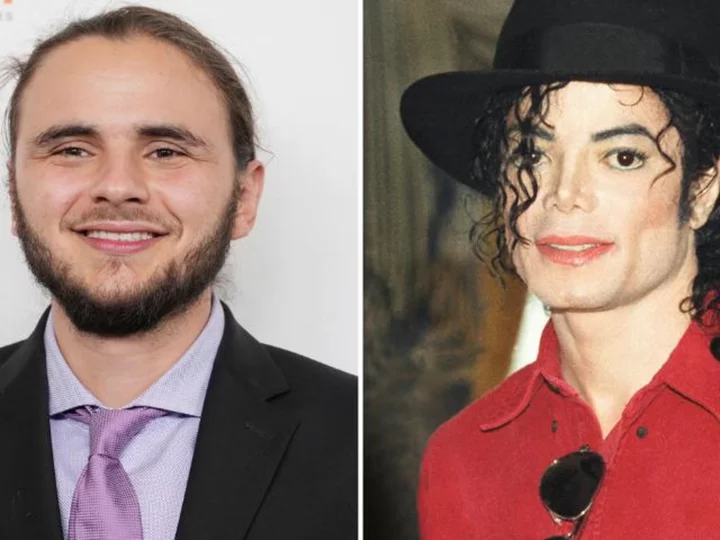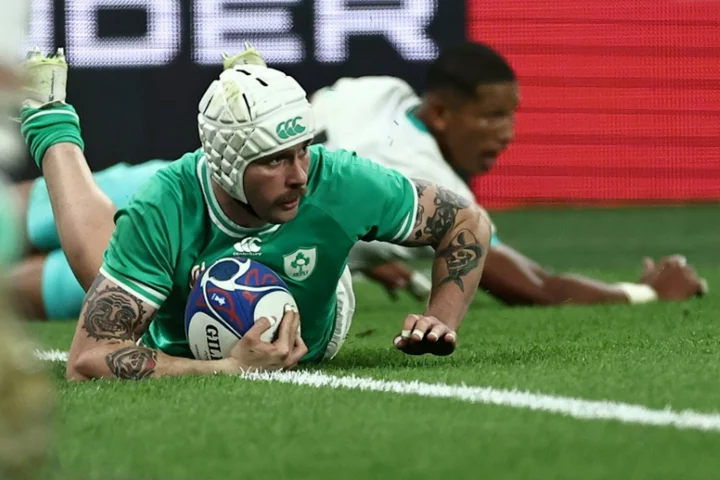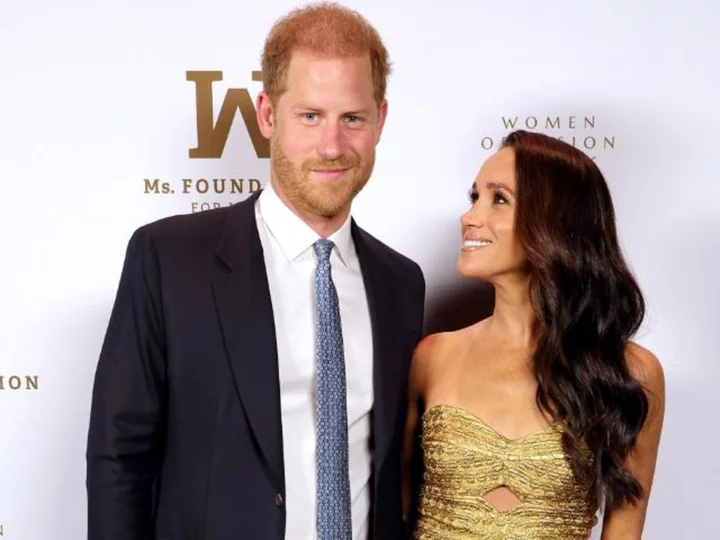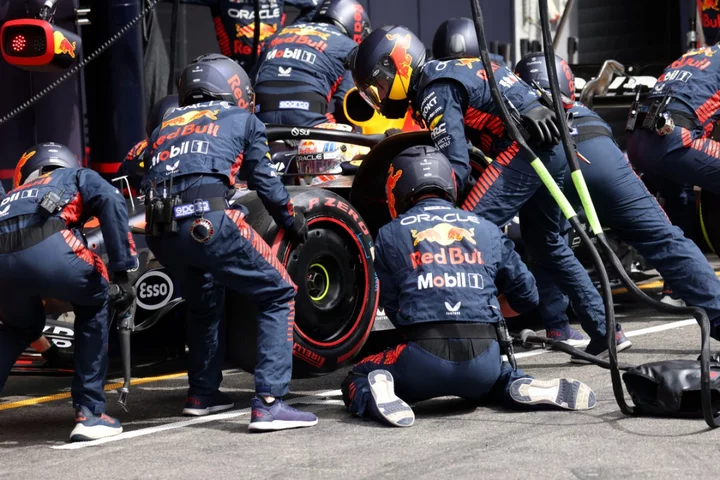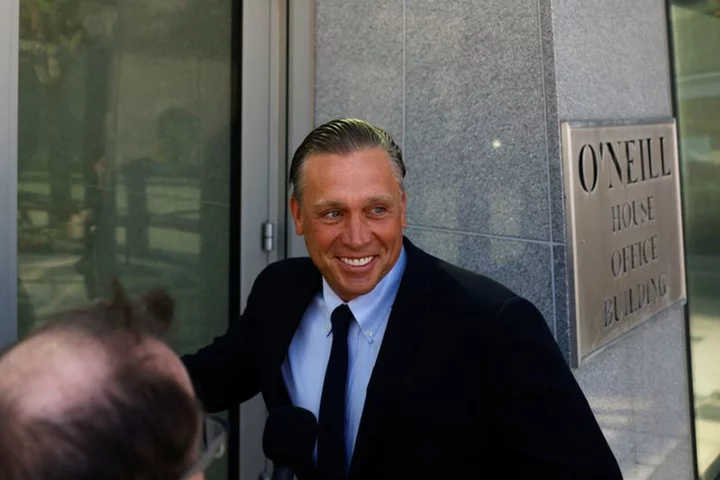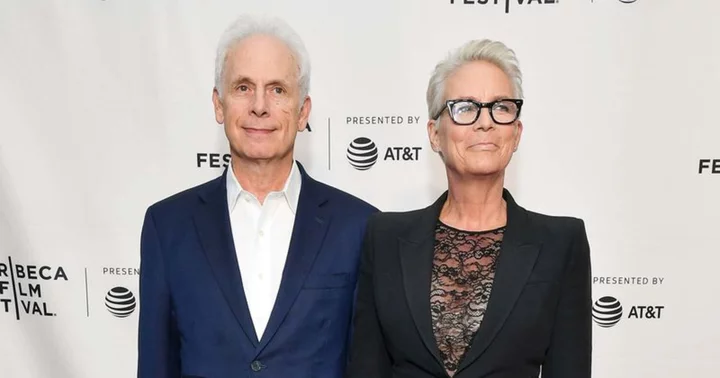Saudi Arabia may have failed to lure Lionel Messi but Karim Benzema's extravagant welcome and the merger that stunned golf underline the extent of the oil-rich country's sporting ambitions.
A beaming Benzema was hailed by thousands of fans at his new club Al Ittihad late on Thursday, holding the Ballon d'Or aloft as fireworks, flame-throwers and a drone display lit up the night sky.
The French striker's gala welcome, a day after Messi chose Inter Miami over the desert kingdom, was straight from the template of Cristiano Ronaldo's unveiling at Al-Nassr in January, a moment that brought Saudi football to world attention.
Since then, the Public Investment Fund -- one of the world's richest sovereign wealth funds -- has been pursuing some of football's biggest stars, including the ultimately elusive Messi.
With its oil riches, Saudi Arabia, the conservative Gulf monarchy frequently targeted over its human rights record, has swiftly achieved a prominent role in world sports, dishing out billion of dollars in the process.
In football, the presumed goal is hosting the World Cup, which is intended to lift Saudi Arabia's profile and prestige as it tries to diversify its oil-reliant economy by attracting tourists and investors.
"Saudi Arabia has set its sights on hosting the 2030 World Cup," said Amir Abdelhalim, an Egyptian football analyst who is a regular on Saudi Arabia's SCC sports TV station.
"The presence of Ronaldo and other megastars secure constant publicity to Saudi Arabia's sports profile, and contribute to guaranteeing global attention to the Saudi World Cup bid when announced."
- Olympics 'goal' -
Last year, Sports Minister Prince Abdulaziz bin Turki Al-Faisal told AFP that hosting the Olympics is "an ultimate goal for us".
In the coming years, Saudi Arabia will organise the men's Asian Cup football, the Olympic-style Asian Games and even the Asian Winter Games in 2029.
After snapping up English club Newcastle United and hosting its first Formula One race in the final months of 2021, the developments have followed with dizzying speed.
LIV Golf, also formed in late 2021, tempted a list of top players with eye-watering offers, holding its first tournament the following June and triggering an angry response from the sport's established PGA Tour and DP World Tour.
On Tuesday, after two years of acrimony and legal challenges, the warring tours announced a new and unnamed "commercial entity to unify golf", with PIF governor Yasir Al-Rumayyan chairing the board of directors.
"Human rights clearly took a back seat to the merger's financial benefits," commented Joey Shea, Saudi Arabia researcher at Human Rights Watch.
Despite the criticism, it appeared a clear victory for the upstart tour that has only completed one season, and a major advance for the Saudi sports strategy.
Under the "Vision 2030" development plan of Saudi Arabia's 37-year-old de facto ruler, Crown Prince Mohammed bin Salman, Saudi Arabia is undergoing widespread social and economic changes, building new tourist facilities and a futuristic, $500 billion new city.
- 'Very wealthy government' -
But Ali Shihabi, a Saudi political commentator who is close to the government, said buying global stars for domestic football teams "has nothing to do with tourism".
"It has everything to do with building up the Saudi league to attract the excitement of Saudi youth to sports," he told AFP.
"The return is intangible," he added. "You can't really measure its financial impact."
Saudi Arabia, a country of 32 million with 51 percent aged below 30, has a home-grown football culture and a credible national team that beat Messi's Argentina at last year's World Cup.
According to Abdelhalim, the Saudi project has key differences from China's buying spree of footballers and coaches of the past decade, which collapsed when the property market teetered, sending clubs to the wall.
Oil riches have been pouring into the Saudi coffers in recent times, especially last year when Russia's invasion of Ukraine sent prices skyrocketing.
Saudi Aramco, the state oil firm chaired by the golf-loving Rumayyan, reported record annual profits of $161.1 billion for 2022.
"The current Saudi project is different from China, because Chinese clubs were paying huge money, but not for first-class stars," Abdelhalim said.
"The US project is also different because it aims to develop the popularity of football. In Saudi, football is the most popular game, and the Saudi league is already competitive.
"Also the current investment is backed by a very wealthy government."
ht/th/jc


